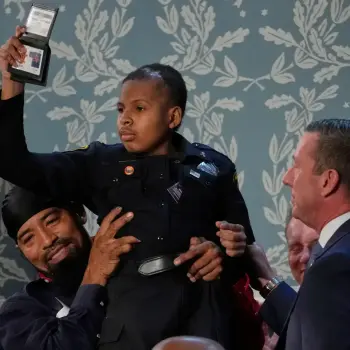As we approach what the Associated Press calls “the most consequential US presidential election in living memory,” it may seem strange to write an article on Bulgaria. However, a recent Pew Research Center survey that includes this Eastern European nation points us to a remarkable basis for hope in these divisive days.
In 2002, only 33 percent of Bulgarians said it is necessary to believe in God in order to be moral and have good values. By 2019, that number had risen to 50 percent. By contrast, 58 percent of Americans agreed with this statement in 2002; in 2019, the number had fallen to 44 percent.
Why did Bulgaria see such a distinct rise? According to Archimandrite Nikanor, abbot of Gigintsi Bulgarian Orthodox Monastery, there was an “ethical vacuum” in his country.
Bulgaria’s transition to democracy following the collapse of Communism in 1989, coupled with its 2007 integration into the European Union, has led to a national Christian renaissance with the renovation of church parishes and the giving of charity. Theological schools have seen a surge in enrollment as well.
“Many people [now] believe that morality is based on the commandments of God, meaning religion,” Nikanor said.
George Washington agreed. In his 1796 Farewell Address, our first president declared, “Of all the dispositions and habits which lead to political prosperity, religion and morality are indispensable supports.” He added that “reason and experience both forbid us to expect that national morality can prevail in exclusion of religious principle.”
Rabbi Jonathan Sacks agrees as well. In Morality: Restoring the Common Good in Divided Times, Sacks claims that morality is essential to a healthy society and its freedoms. This fact is especially true of participatory democracy. If I cannot trust that my vote will be counted fairly, I am less likely to vote. If we do not honor the rule of law, we must live without rules.
Such consensual morality is best grounded in a religious worldview. John Adams was adamant: “We have no government armed with power capable of contending with human passions unbridled by morality and religion. Avarice, ambition, and revenge or gallantry would break the strongest cords of our Constitution as a whale goes through a net.”
As a result, he stated, “Our Constitution was made only for a moral and religious people. It is wholly inadequate to the government of any other.”
Here’s my point: whoever wins the election on November 3, our nation will need to be “a moral and religious people.” Whatever happens in coming days, we will need the “indispensable supports” of “religion and morality.”
To this end, Christians can make two biblical commitments in advance of the election.
One: We will speak graciously, whether others speak graciously of us or not.
Jesus taught us to speak to each other rather than about each other (Matthew 18:15). We are forbidden to gossip (Proverbs 26:20) and slander (Psalm 101:5). We should remember that “on the day of judgment people will give account of every careless word they speak” (Matthew 12:36).
We are to defend our faith “with gentleness and respect, having a good conscience, so that, when you are slandered, those who revile your good behavior in Christ may be put to shame” (1 Peter 3:15–16).
Two: We will act redemptively, whether others act redemptively toward us or not.
Marcus Aurelius observed, “To do harm is to do yourself harm. To do an injustice is to do yourself an injustice—it degrades you.”
God’s prophet asked, “What does the LORD require of you?” Then he answered his question: “To do justice, and to love kindness, and to walk humbly with your God” (Micah 6:8). There are no provisions that exempt us from justice, kindness, and humility if others do not treat us with justice, kindness, and humility.
To the contrary, the more we are mistreated, the greater our opportunity to glorify God by responding with grace. The darker the room, the more powerful the light.
Ralph Waldo Emerson testified: “The purpose of life is not to be happy. It is to be useful, to be honorable, to be compassionate, to have it make some difference that you have lived and lived well.”
What difference will you make today?
Jim Denison, PhD, is the founder of Denison Forum with a reach of 1.9 million. He also serves as Resident Scholar for Ethics with Baylor Scott & White Health.















